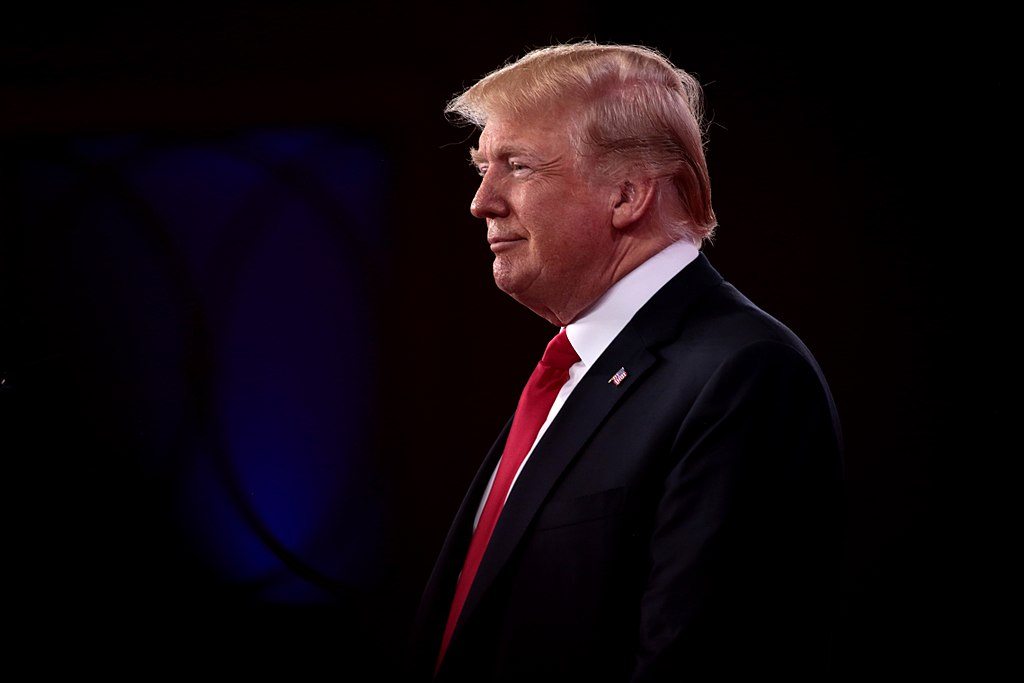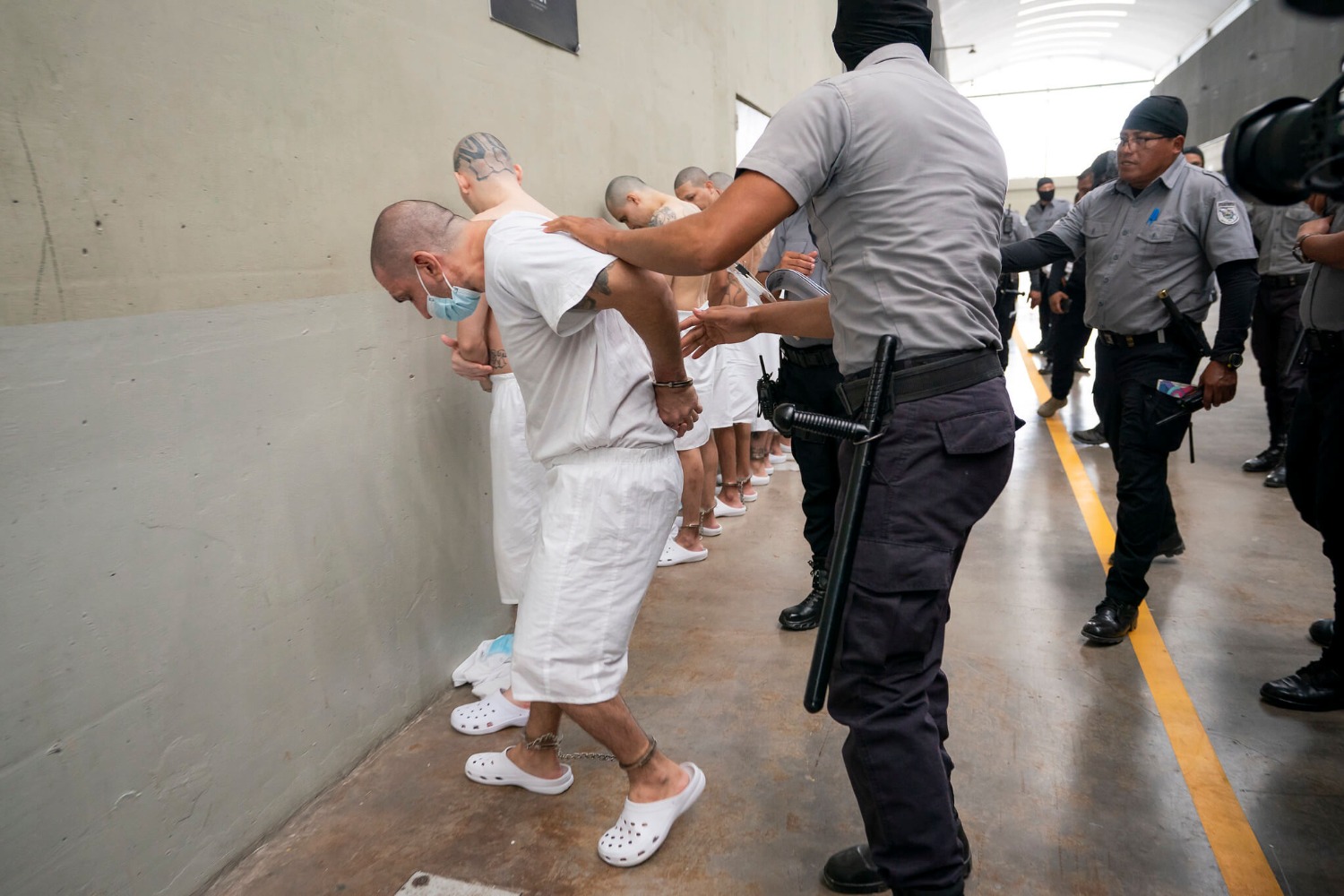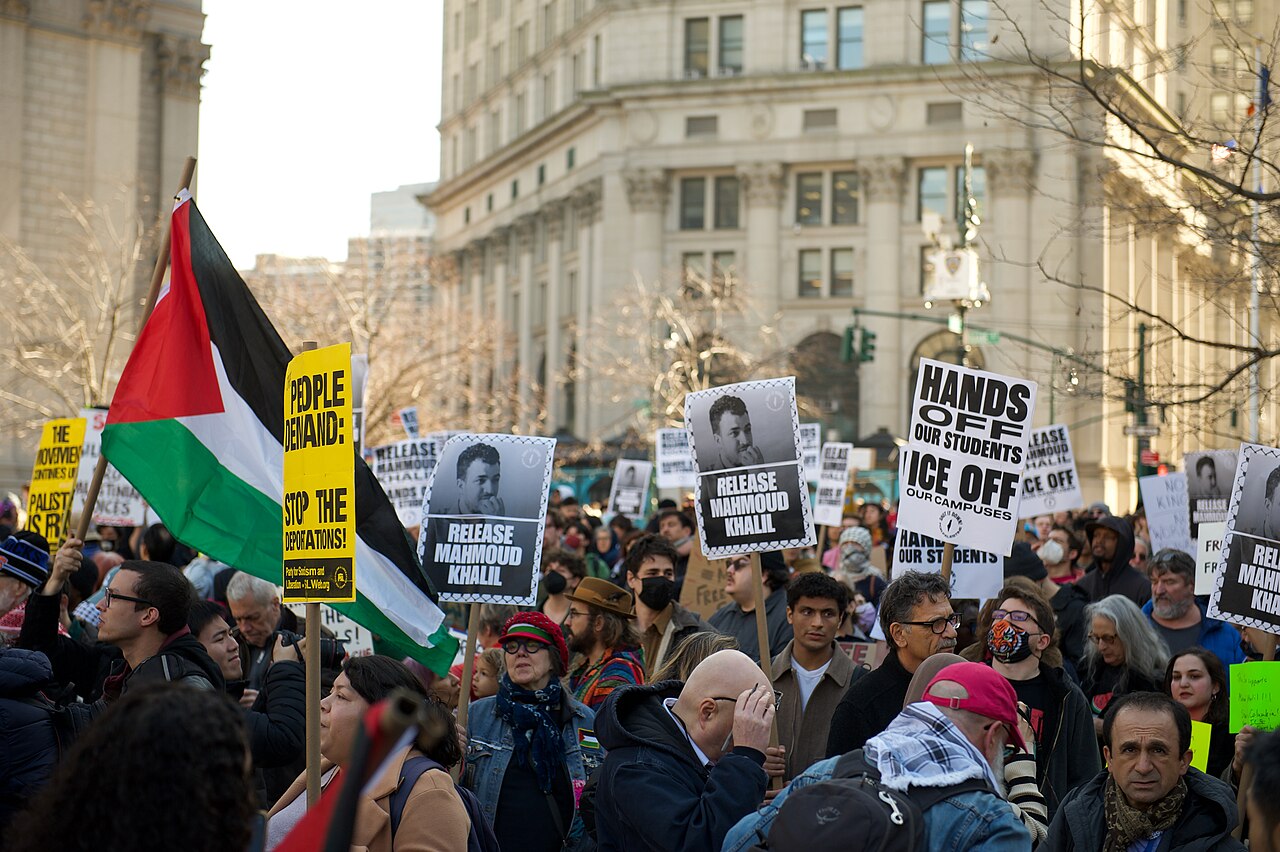Two Court Rulings on Presidential Immunity Move the Trump Cases Forward
Rulings by federal district and appeals courts in Washington, D.C. will make it a lot harder for Trump to delay his trial in the Jan. 6 case.

Published by The Lawfare Institute
in Cooperation With

The already-bleak prospect for former President Donald Trump of avoiding a federal trial early in the new year got a little bleaker on Friday with a pair of rulings from federal courts in Washington.
One of these rulings, from Judge Tanya Chutkan in the criminal case against Trump for his efforts to overturn the 2020 election, rejected his sweeping claims of presidential immunity from criminal prosecution.
The other, in a civil case before the U.S. Court of Appeals for the D.C. Circuit, interpreted the presidential immunity available to him in the civil context relatively narrowly—suggesting that even were the courts to recognize some form of immunity in the criminal context, large swaths of the federal indictment might well survive.
The district court opinion is no surprise. Given the total absence of textual and historical support for the immunity Trump was seeking, Judge Chutkan’s ruling—a total rejection of the idea of presidential immunity in the criminal context—is exactly what would have been expected of a district court judge.
The D.C. Circuit opinion, by contrast, is a very big deal, and in its unanimity across political ideology—given that the panel included two judges appointed by Democratic presidents, along with a Trump appointee—it is a bit of surprise. In combination, the district and appeals court rulings make the landscape for Trump’s efforts to delay his trial (currently scheduled for March) rather dimmer. And the D.C. Circuit’s ruling makes that court look like a tough market in which to sell sweeping claims of presidential immunity Trump needs to avoid trial.
The first notable aspect of the D.C. Circuit opinion is that it is unanimous in all material respects. There are two concurrences, one by Judge Gregory Katsas, and one by Judge Judith Rogers—the latter of whom take sharp issues with non-central aspects of Chief Judge Sri Srinavasan’s opinion for the court. Both Judge Katsas and Judge Rogers, however, sign onto the key reasoning of the opinion. This is a remarkable show of unity from a philosophically and ideologically diverse court. Chief Judge Srinavasan, after all, is an appointee of President Obama. Judge Rogers was appointed by President Clinton. And Judge Katsas was not only placed on the court by President Trump, but previously served in Trump’s White House counsel’s office.
The case, Blassingame v. Trump—previously known as Thompson v. Trump—involves the question of whether Trump might be held civilly liable for harms to members of Congress and Capitol Police officers who allege injury stemming from Trump’s Jan. 6 speech on the Ellipse.
The subject matter is notably narrower than that of the criminal case brought by Special Counsel Jack Smith, over which Judge Chutkan is presiding. Blassingame does not focus on the broad pattern of conduct following the 2020 election, but specifically on Trump’s speech on Jan. 6. What’s more, the case involves a set of civil claims, an area where a broad presidential immunity from suit is well established. Chief Judge Srinivasan, indeed, specifically disclaims the question of whether there might be immunity from criminal prosecution: “Nor does our decision on a President’s official-act immunity from damages liability in a civil suit treat with whether or when a President might be immune from criminal prosecution.”
Rather, the case pokes at an important question about presidential immunity that has been kicking around since the Supreme Court established the doctrine in a case called Nixon v. Fitzgerald and then cabined it in the famous Clinton v. Jones case. In Fitzgerald, the court recognized the absolute immunity for presidents for suits for damages for any matter arising out of conduct with the “outer perimeter” of the presidential function. In Clinton v. Jones, the court made clear that conduct predating a presidency was outside of that outer perimeter and thus subject to suit. But this left a giant analytical hole: What about conduct that took place during a presidency but that was not unambiguously conducted in the president’s role as president?
Moving to dismiss the claims against him, Trump argued that he was immune for all of the actions at issue in the complaint as they involved a speech he gave as president. But in February 2022, U.S. District Judge Amit Mehta denied Trump’s motion, ruling that Trump’s actions on Jan. 6 were not “in furtherance of a presidential function” but rather aimed at securing a second term, and that Trump was not therefore immune from civil suit over his conduct. The D.C. Circuit heard oral arguments in December 2022—and, almost exactly a full year later, finally handed down an opinion affirming Judge Mehta’s opinion and allowing the civil cases against Trump to move forward.
Even separate from its implications for Trump’s criminal prosecution, the D.C. Circuit’s ruling in Blassingame is a big deal in its own right. Given the totalizing nature of the presidency, the idea of absolute immunity within the “outer perimeter” of the presidential function made for a doctrinally tricky problem. Barring a murder on the White House lawn—or, say, the president pulling out a pistol and shooting someone on Fifth Avenue—how could courts reliably distinguish immunized presidential conduct from personal, non-immunized conduct by the person who happened to be holding the office of the presidency? Here, though, a unanimous panel of the D.C. Circuit has attempted to draw some conceptual lines.
Chief Judge Srinivasan’s opinion for the court adopts Mehta’s approach of distinguishing between actions taken by an incumbent president in his role as president, versus actions taken to secure reelection. The “President acts in a private, unofficial capacity when engaged in re-election campaign activity,” Srinivasan writes—rejecting Trump’s argument that, as Srinivasan describes it, “all of a President’s speech on matters of public concern, as a categorical rule, is an exercise of official presidential responsibility.” So the question before the court in Blassingame, therefore, is whether Trump was acting “as an office-holder or office-seeker” when it comes to the conduct at issue in the complaint.
Quoting the Supreme Court’s 2020 ruling in Trump v. Mazars, Srinivasan acknowledges that “there is not always a clear line between [the President’s] personal and official affairs”—but he writes that, “The potential difficulty of meting out that distinction in some situations … cannot justify simply giving up on the enterprise altogether.” Still, this “inquiry … should be fashioned and carried out with appropriate sensitivity to the important interests at stake,” meaning that courts’ analysis should avoid inquiry into the motive behind any presidential action but rather an “objective, context-specific assessment” of the conduct in question. That “context-specific assessment” requires a focus on where and how a president says something, rather than on “what precisely he says or whether it might advance his re-election prospects”—though “the content of a speech … could serve to confirm what an objective assessment of the context makes evident.”
If a court can’t find a “sufficiently clear answer in either direction” as to whether an action is more presidential or more campaign-focused, then the president should receive immunity. Only if “a President’s actions viewed objectively and in context may reasonably be understood only as re-election campaign activity” should immunity be denied. That provides the president with a fair amount of leeway. In his concurrence, Judge Katsas emphasizes that, “The Court’s approach recognizes that presidential speech on matters of public concern will very often be official—and thus immunized.” For example, he suggests, “The President’s official duties are so pervasive that he may occasionally render official speech even during a typical campaign event.”
How, then, to apply this framework to the facts alleged by the Blassingame plaintiffs? Here, Trump has helpfully made the D.C. Circuit’s work easy, thanks to a December 2020 motion filed with the Supreme Court in Texas v. Pennsylvania, the short-lived litigation seeking to block the electoral votes of Pennsylvania and other swing states from being counted in the electoral college. In filing that motion to intervene, Srinivasan points out, Trump explicitly announced that he was doing so “in his personal capacity as candidate for re- election to the office of President” due to his “unique and substantial personal interests as a candidate for re-election to the Office of President”—not in his official role as incumbent president. With that assertion on the table, it’s easy for Srinivasan to establish that, taking the facts as alleged, Trump was indeed acting as a candidate and not as a president when it comes to the conduct at issue in Blassingame.
While Trump may try his luck with an appeal, this opinion is unlikely to be significantly disrupted going forward. The Supreme Court tends to respect unanimous cross-ideological rulings from the D.C. Circuit, and the judges on this panel command respect across the political spectrum. So on its own terms, the case is important because it significantly clarifies where there is, and where there is not, an opportunity to sue presidents on the basis of conduct taken during their time in office. In particular, it seems to widen the possibility of suits against presidents, contending that—at least in the D.C. Circuit and at least for now—the president cannot assert immunity where a contextual analysis of the conduct shows it to have taken place in the president’s private capacity as a candidate for office.
The decision, however, is a particularly big deal in light of the pending criminal case against Trump, in which the former president is trying to argue for an extension of Fitzgerald immunity into the criminal realm.
Trump’s basic argument here is that the court should extend the civil immunity recognized by Fitzgerald to preclude criminal charges against former presidents for conduct within the “outer perimeter” of the presidential function. This is the argument that Judge Chutkan, in her opinion in the criminal case, rejects completely. “The Constitution’s text, structure, and history do not support that contention,” she writes, continuing, “Whatever immunities a sitting President may enjoy, the United States has only one Chief Executive at a time, and that position does not confer a lifelong ‘get-out-of-jail-free’ pass.”
The Constitution contains no provision granting presidents immunity from criminal prosecution, Judge Chutkan reasons, even as it provides immunity for members of Congress in the form of the Speech or Debate Clause. Trump attempts to point to constitutional language about permissible punishments for impeachment—working backward from the Constitution’s statement that impeached and convicted officials “shall … be liable and subject to Indictment” to argue that, because he wasn’t convicted in his second impeachment, he can’t be indicted on the same facts. But Judge Chutkan writes that reading the Impeachment Judgments Clause this way would “contravene its plain meaning, original understanding, and common sense.”
The judge is likewise unimpressed by Trump’s effort to extend the Supreme Court’s reasoning in Fitzgerald to the criminal context. Trump points to the Court’s concern that the prospect of later civil suits over official presidential actions might cause a president to hold back from carrying out the duties of his office—but, Chutkan writes, this concern over chilling effects doesn’t hold up when it comes to criminal law, especially criminal law, as in this case, that requires the president to engage in intentional wrongdoing. After all, breaking the law isn’t part of the president’s responsibilities: “If the specter of subsequent prosecution encourages a sitting President to reconsider before deciding to act with criminal intent, that is a benefit, not a defect,” Chutkan writes. And while “the possibility of vexatious post-Presidency litigation” is a potential problem in the civil context, there’s no reason to think that former presidents will be buried under a wave of indictments. What’s more, the public has a strong interest in criminal prosecution of wrongdoing by one-time chief executives, which “is essential to fulfilling our constitutional promise of equal justice under the law.”
However stirring one finds this rhetoric about the rule of law, Judge Chutkan’s ruling is wholly unsurprising. There being so little doctrinal support for the idea of presidential criminal immunity, it was improbable in the extreme that it might be recognized at the district court level. If Trump was going to succeed in his effort to secure presidential immunity from prosecution, that immunity was always going to come from an appellate court—to wit, either the D.C. Circuit or the Supreme Court.
Trump’s problem is that, in light of the D.C. Circuit ruling in the Blassingame case, it’s now a lot less likely that he’ll find a receptive audience there for broad presidential immunity claims.
This is not to say, as some commentators are arguing, that the Blassingame decision decides the immunity question. Andrew Weissmann, who formerly worked as a prosecutor on the Mueller investigation, is overstating things a bit when he describes it as a “death knell in the DC circuit for Trump's claim of presidential immunity in the J6 criminal case.” One case (the criminal case), has to do with when the former president does and does not receive immunity; the other (the civil case) involves the scope of immunity when he does receive it.
That said, it would be odd—not impossible, but highly incongruous—for the D.C. Circuit to hold both that Fitzgerald immunity is narrower than expected and thus doesn’t protect a major speech by the incumbent president, but also that it is dramatically broader than expected and thus now protects against criminal cases, as well as civil actions.
Perhaps more dangerous for Trump is Blassingame’s implication that even if immunity did apply in criminal matters, a great deal of the current indictment might hold up anyway. That implication arises because a great deal of the activity described by the indictment, like the speech on Jan. 6, might not turn out to be official action under Blassingame’s framework. To be sure, some of the allegations of the indictment would likely prove subject to immunity—particularly those parts, like those involving supervision of the Justice Department, which involve management of the executive branch. But a lot of the activity of the indictment—for example, Trump’s conversation with Georgia Secretary of State Brad Raffensperger demanding that Raffensperger “find 11,780 votes”—is more plausibly thought of Trump acting in his capacity as a candidate for office. Ditto Trump’s pressuring of state legislators and maybe even his bullying of Vice President Mike Pence. Each of these fact patterns, assuming immunity applied, would have to go through the same contextual analysis as to which of the president’s two bodies Trump was inhabiting.
Because presidential official-act immunity remains unrecognized in the criminal context, it’s not clear how it would interact with an indictment that covers a range of both official and unofficial acts. But under the D.C. Circuit’s Blassingame framework, the indictment wouldn’t necessarily be dismissed, even if Judge Chutkan were to face reversal on her ruling that no immunity exists.
In other words, the path for Trump on immunity, which was already tough, has just gotten tougher. And the D.C. Circuit now seems like an unfriendly forum in which to appeal Judge Chutkan’s ruling.
Perhaps the most immediately important issue arising out of these two cases is the question of whether Trump will succeed in getting proceedings stayed while the D.C. Circuit and the Supreme Court consider Judge Chutkan’s ruling. Trump is entitled to an interlocutory appeal of that ruling, which is to say that he doesn’t need to appeal it in the context of a final judgment of the case; he can bring the appeal now. His trial is also set for March 4. This sets up a potential clash between the appellate timetable and the current trial schedule.
One possibility is that the D.C. Circuit will consider the appeal very quickly—and that the Supreme Court will too—thus resolving the immunity question before the trial is set to start. But that’s no sure thing. So the question of whether the appellate courts will let trial preparations go forward as they consider the appeal will become increasingly important as the appeal gets under way.
That will be the next big battle, and a critical one in determining whether a trial is going to move forward or get bogged down in appellate litigation.






